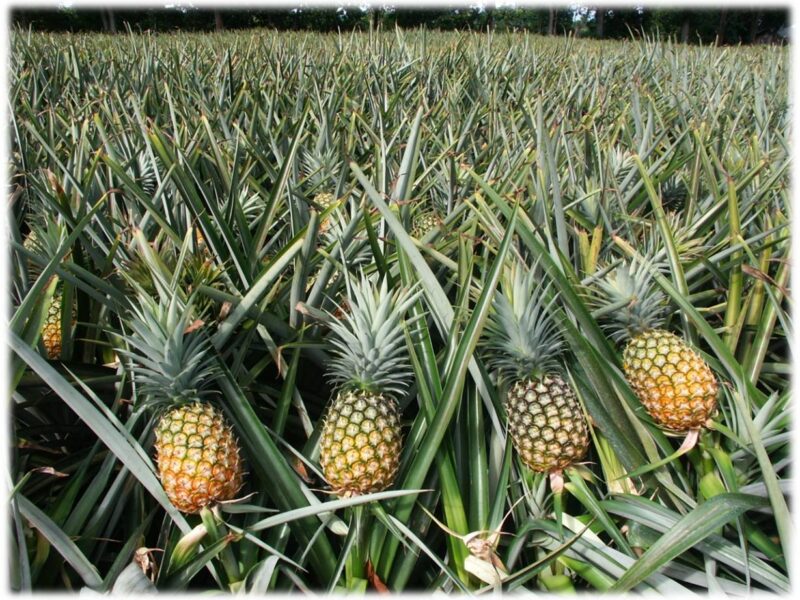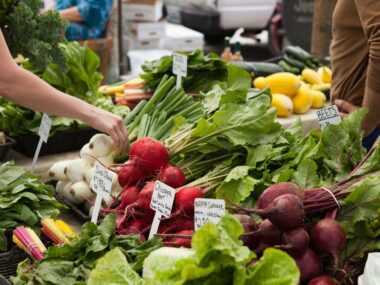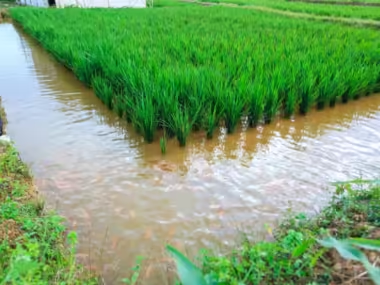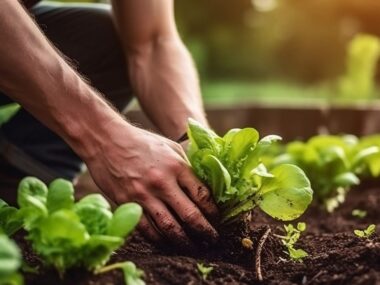Pineapple, a tropical fruit known for its sweet and tangy flavour, is cultivated in many regions around the world, contributing significantly to agricultural economies. Pineapple plantations play a crucial role in global food production, providing a sustainable source of income for farmers and supplying consumers with popular and nutritious fruit.
In this article, we will explore the cultivation, management practices, and economic impact of pineapple plantations in agriculture.
Cultivation of Pineapple
- Pineapple cultivation begins with the selection of suitable land with well-drained, fertile soil and adequate sunlight.
- Propagation is typically done using vegetative methods, such as planting the crowns or suckers of mature pineapple plants.
- Planting density, spacing, and row arrangement are important considerations to optimize yield and facilitate cultural practices.
Cultural Practices
- Pineapple plantations require regular irrigation, particularly during dry periods, to ensure optimal growth and fruit development.
- Weed control is essential to prevent competition for nutrients, water, and sunlight, with manual, mechanical, or chemical methods employed.
- Fertilization is necessary to maintain soil fertility and support healthy plant growth, with balanced applications of nitrogen, phosphorus, and potassium.
Pest and Disease Management
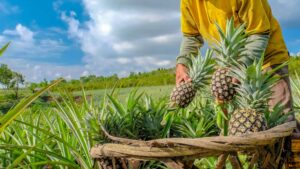
- Pineapple plants are susceptible to various pests and diseases, including nematodes, mealybugs, and fungal pathogens.
- Integrated pest management (IPM) strategies, such as cultural practices, biological control, and judicious use of pesticides, are employed to minimize pest damage.
- Disease-resistant pineapple cultivars and proactive measures, such as crop rotation and sanitation, help mitigate disease outbreaks.
Harvesting and Post-Harvest Handling
- Pineapples are typically harvested when fully mature, as indicated by fruit size, colour, and aroma.
- Harvesting is done manually, with workers using machetes or knives to cut the fruit from the plant.
- Post-harvest handling involves cleaning, sorting, and packaging the pineapples for transport to markets or processing facilities.
Economic Impact
- Pineapple plantations contribute significantly to agricultural economies in tropical regions, providing employment opportunities and income for farmers.
- Export-oriented pineapple industries generate foreign exchange earnings and stimulate economic growth in producing countries.
- The global demand for pineapple products, including fresh fruit, juice, and canned slices, drives market expansion and investment in pineapple cultivation.
Challenges and Opportunities
- Pineapple cultivation faces challenges such as climate change, soil degradation, and market fluctuations, which necessitate adaptive strategies and sustainable practices.
- Opportunities exist for value-added products, such as pineapple-based beverages, snacks, and processed foods, to diversify income streams and increase market competitiveness.
In conclusion, pineapple plantations play a vital role in agriculture, providing a sustainable source of income for farmers, supporting rural livelihoods, and meeting consumer demand for a popular tropical fruit.
By implementing sound agricultural practices, managing pests and diseases, and leveraging market opportunities, pineapple growers can enhance productivity, profitability, and sustainability in pineapple cultivation.
As global demand for pineapple products continues to grow, pineapple plantations will remain an essential component of the agricultural landscape, contributing to food security, economic development, and environmental sustainability.
Related Tags
Taiwo Olawuyi
Taiwo Olawuyi is a highly dedicated and passionate professional blogger, renowned for her ability to create captivating, informative, and engaging content in the realm of health and wellness. She holds a Bachelor's degree in Political Science from Olabisi Onabanjo University and a Master's degree in Adult Education from the prestigious University of Ibadan. Her profound passion for health and wellness, coupled with her unwavering dedication to her audience, serves as a constant source of inspiration and enlightenment for readers worldwide.
